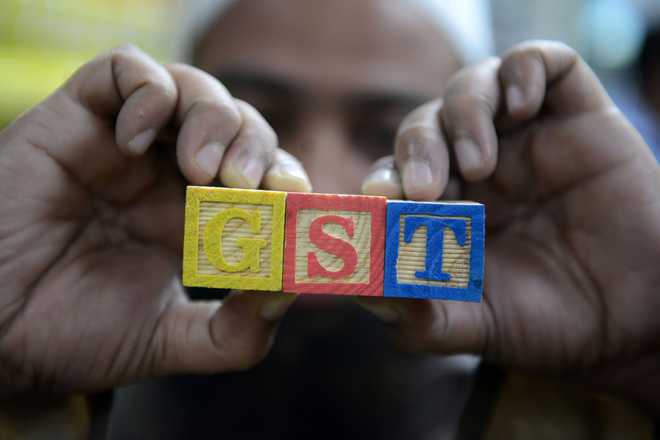
THE government’s half-hearted attempt to revamp GST will neither shield it from the ongoing criticism of economic mismanagement nor help the BJP in wooing back its estranged vote bank — the trading community. The decision to cut duties on 27 items, including khakra, on the eve of Prime Minister Modi’s two-day Gujarat visit, is more political than economic. The Friday announcement also exempted jewellers from reporting data on buyers’ purchases worth over Rs 50,000, besides slashing duty on man-made fibre to mainly placate businessmen in Gujarat. This happened despite PM Modi’s emphatic statement last week that he detested the politics of announcing sops before elections. Everyone knows that he can’t afford to lose the political battle in Gujarat, his home turf. Sporadic exemptions to small businessmen and temporary relief to exporters will certainly bring them some cheer but these are not substantial enough to reverse the current economic downturn. The new tax regime is also far away from being called “good and simple tax” because of compliance hassles, technical glitches, uncertainty over refunds and unpredictability. It is feared that multiple tax slabs, exemptions under political pressure, ad hoc institutional arrangements and absence of a clear roadmap will make GST more complex and cumbersome than the previous VAT regime. It seems that officials in the Finance Ministry and members of the GST Council are ignoring the GST concept paper that promises “ease of doing business” by simplifying the tax regime with fewer exemptions, reducing multiplicity of taxes, cutting down compliance costs and so on. The new regime has already gained experience of one quarter. Data shows that out of 54 lakh registered entities, only about 10,000 have contributed two-thirds of the total Rs 94,000 crore mopped up in July. The government must find out the reasons for such a small number of contributors and devise mechanisms for better collection sans coercion. The best way is to keep the regime uncomplicated with one or maximum two tax rates, besides levying cess only on luxury goods and hazardous items. Minimal paperwork, robust IT infrastructure and friendly taxmen would certainly make it “good and simple tax”, not politically-driven tinkering
